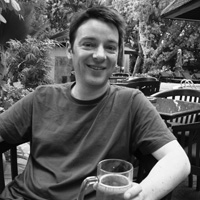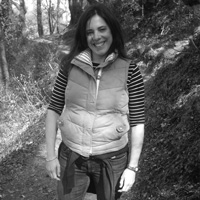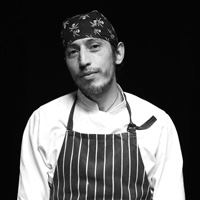 The decision to switch your career at any stage of your life is a brave, and potentially risky, one. These four people all followed their hearts and ditched their jobs in pursuit of totally different ones. And there have been no regrets.
The decision to switch your career at any stage of your life is a brave, and potentially risky, one. These four people all followed their hearts and ditched their jobs in pursuit of totally different ones. And there have been no regrets.
From selling to teaching
Michael Robinson, 40, is about to start his third year as a primary school teacher after leaving a successful career as a sales and marketing manager…
For 10 years I worked as a sales and marketing manager for television companies. It was something I stumbled into as a graduate. I left university with a degree in environmental science and during my degree, one day a week, I did voluntary teaching at a local primary school, taking an environment and science class. I really enjoyed it and knew that teaching was something I wanted to do.’
In a different direction
‘Two things happened that meant I didn’t go into teaching straight away. Firstly, the teacher whose class I’d worked in told me not to! She said you make a much better teacher if you go away and do something else when you’re young to get experience in the world. Secondly, I couldn’t afford to do teacher training in London, so I talked my way into a sales job. ‘After years of moaning about still wanting to be a teacher, my wife, Nicola, eventually said, “Just shut up and do it!”
Happy, at last!
‘I feel more fulfilled since becoming a teacher, but it’s been harder than I ever thought it would be. There have been moments when I’ve thought, I’m working twice as hard for half the money. But I still feel 100% that I made the right decision. ‘Some days are brilliant – when you have a good lesson, you realise 80% of the children have learnt something new. In primary school, you’re shaping children in every way. It’s an incredible feeling when parents come to you at the end of the year and thank you, really sincerely, for the progress their children have made. It’s a joy to help the children who need it most, so I’d never work in a private school. ‘The best thing for me about being a teacher is the children. Something really funny and enjoyable happens each day. It’s a real cliché, but every day is different. ‘Five years ago, I talked about making the change but wasn’t sure I could do it. Now, having done it, I literally feel like I can do anything. I feel proud of myself.’
Want to tread the same path?
Here’s Michael’s advice if you’re thinking of training to be a teacher:
- There’s a huge amount of work to do in and out of the classroom and it is a lot of responsibility, especially in a primary school. You are responsible for 30-odd children.
- Don’t go into it just because you can’t think of anything else to do. Also, if you have a history degree, don’t think of becoming a history teacher just for that reason. You shouldn’t go into teaching lightly.
 From fashion to reflexology
From fashion to reflexology
Lubna Ahmad, 31, lives in London. She is a qualified reflexologist, having started out in the glamorous fashion industry…
My career began in the luxury fashion industry, working for Louis Vuitton. I was in sales, serving customers and selling products on the shop floor in Selfridges. I worked there for four years and, during that time, I was also studying part-time for a degree in fashion management. ‘In my third year at the company, I was promoted to head office for maternity cover as a revenue accounts assistant, and that gave me corporate head office experience. When that ended, however, I had to go back to the shop floor. It really felt like a step backwards. ‘I thought the fashion industry would be creative and buzzing, but I realised I’d been deluded. It just wasn’t for me.’
A realisation dawns
‘In January 2006, I quit. A week later, I got a job as a PA for a political consultancy firm. For a few years, I did contract PA or secretarial work in different industries and ended up getting irritable bowel syndrome. I realised I needed a change. ‘In July 2009, I went to Thailand to celebrate my 30th birthday and while in Bangkok, I went to a spa and had foot reflexology. The spa was beautiful and that was my lightbulb moment. I realised, this is it! This is what I need to be doing.
‘When I returned from Thailand, I researched the spa and discovered it was looking to open a franchise in London – but I’d need £100,000 which I didn’t have. I realised I would have to start from the beginning and learn the trade itself, so I took a nine-month course at the London School of Reflexology. I’m now a qualified reflexologist and a member of the Association of Reflexologists (AOR). ‘My business concept is to go into organisations and offer hand reflexology or Indian head massage. Both of these concentrate on the upper body, so they are very good for office workers who have RSI or neck and shoulder tension.’
Complete independence
‘I want freedom in my work, where I don’t have to rely on others. That’s my main motivation – not money. It’s being able to make my own decisions and doing my own thing, building my clients. It’s like having a baby and watching it grow. At the moment, the baby’s whinging and flapping its arms, but I’m getting there! ‘The best thing about my new career is that people come to me, stressed and tense, but by the time I’ve treated them, it’s as if they’re walking on clouds. I get a huge amount of satisfaction out of that.
‘Both my creative and business side are challenged. I have a formula – the more you put in, the more you get out – but that formula hasn’t worked for me before. What I put in wasn’t equal to what I got out. But the more I put in to my company (www.reflexspace.com), the more I’ll get out. It’s that realisation and knowing that the sky’s the limit that I find so exciting.’
Want to tread the same path?
Here’s Lubna’s advice if you’re thinking of becoming a reflexologist:
- Try reflexology yourself to see if you enjoy, and believe in, the therapy.
- Training involves a lot of anatomy and physiology – you have to work really hard. It’s not a simple thing where you do a one-day course. You have to like learning about the body.
 From TV to physiotherapy
From TV to physiotherapy
Aimee Handsley, 37, was once a daytime TV researcher and producer but is starting over as a physiotherapist…
After university, I contacted Anglia Television to see if I could do some work experience there. I certainly didn’t leave university thinking I wanted to be a TV producer, but I did some work in the newsroom and on various shows and was offered a job on the back of that. ‘I loved the job – it had everything I didn’t know I was looking for! I didn’t realise the world of work could be so exciting, but this job was. It was right for me at the time and the more I did it, the more I enjoyed it. It gave me a lot of confidence, I had a lot of fun and the people I worked with were my age so I made a lot of friends. It was a laugh but it was also hard work. It’s probably the hardest job I’ve ever had, with very long hours, but we were all in it together. ‘There was a clear career progression, too. I started as an audience researcher and worked my way up to producer. The work was contract-based, but I was dedicated and worked hard, so when one job finished I always got another.’
Priorities change
‘When I got pregnant, in 2002, I was at the BBC and I remember thinking, This is really hard work. You need a lot of stamina and I was heavily pregnant and I really started to feel it! When my son, Laurie, was born, I knew I wouldn’t be able to keep up the pace. Also, my priorities changed. TV had been very important to me, but when I had Laurie, I realised it didn’t matter as much as I thought it did. ‘I knew I wanted to stay at home and look after Laurie but I also wanted to do something different. So I started some voluntary work at the Stroke Association in 2003. Working there, one day a week, made me realise there were other careers that were much more important in terms of society and helping people. It gave me a huge sense of purpose.
‘My voluntary work with the dysphasia support group led me to think about different types of therapy because stroke survivors benefited hugely from speech and language therapy and physiotherapy. Physiotherapy appealed to me but, at this time, I had two children in nappies, as my second son, Saul, was born in 2004, so it wasn’t the right time to train. I opted to train in beauty and massage until the time was right to study properly again.’
Moving towards a new life
‘In 2009, I qualified as a beauty specialist (ITEC Diploma for Beauty Specialist) and massage therapist (ITEC Diploma Holistic Massage, Anatomy and Physiology) and have been working from home. I have around 30 clients and work a few hours a week. Treating people with the massage, in particular, is very rewarding. I realised physiotherapy is the next step on for me and finally, I start a BSc degree in physiotherapy at St George’s Hospital, University of London, in September this year. I feel excited and I hope it will be a very varied and satisfying career.’ l Be 100% sure you don’t have a problem touching other people’s feet!
 From photo lab to the kitchen
From photo lab to the kitchen
Fabian Garcia, 47, ran a photography lab in New York but swapped the flash of the camera for the heat of a kitchen…
Diapositive was the photography lab I ran in New York. We did everything from processing photos to organising shoots with supermodels. ‘Then in 2005, I moved to London with my wife, Jane. She’s from England and was unable to get her career going in New York so the plan was to get her career back on track over here. I had no idea what I was going to do, so for the first year, I was a stay-at-home dad to our son, Milo, who was three – but that drove me insane! ‘I talked to photographers here and they all said: “At your stage in life, do something you’re really passionate about. Follow your dreams”. They warned me photography over here was a different ballgame. In New York, I was a very big fish, I knew everybody and people really respected my work. Here, I was completely unknown and would have had to start at the bottom.’
Change of course
‘A discussion with Jane over dinner one night changed my career. She said: “You love food, why don’t you follow that path?” ‘In New York, every single man knows how to cook! We’re outnumbered by the ladies five to one, so when you know how to cook, half the game is won! I’ve always known how to cook well. If I ever tasted something in a restaurant I could always go home and do it just as well. I was born in Colombia and our culture is rich in food. ‘I applied for a job as a kitchen porter at The Pavilion Café in Highgate Woods, north London. I was scared – I was 43 years old and going from hob-nobbing it with the likes of Elle Macpherson to cleaning dishes. But I had to find a way into a kitchen to work my way up. I begged the head chef to hire me – he saw I had an expensive phone and designer sunglasses and he said, “You won’t stick at it”. I convinced him I was willing to do it in order to become a chef.
‘The day I started, I had a lucky break. The walk-in fridge broke down – 100 kilos of carrots were going mouldy. The head chef asked me to peel and end the carrots, pack them up and put them into another fridge. Twenty minutes later I’d done it. He looked at me, and said, “You can’t be done”. So I showed him my work. Then, someone else’s hangover changed the course of my career – the head chef explained his chef de partie had called in sick and I was put in charge of the appetiser section for the day! I never did wash a dish there!’
Tasting success as a chef
‘I stayed at that café for three months, then moved to a café in Queen’s Park where I became head chef. Seven months later, I moved to where I am now, Spring Studios, where I’m executive head chef. I was taken on by Keith Burke who used to be head chef at The Ivy. Keith had told me, “You’ll cry, you’ll hurt, but I’ll make you a chef” – and he was right. The first three weeks, I worked 276 hours! ‘I’ve been here three years now and love it. I have a team of six chefs and I now get to see good friends coming from New York to shoot here. It’s gone full circle.’
Want to tread the same path?
Here’s Fabian’s advice if you’re thinking of becoming a chef:
- Accept that you may have to take a drop in pay initially.
- Be prepared to work very long, unsociable hours – in hot conditions!
- Not everyone falls into this career (like I did) so think seriously about whether you can afford to go back to school and start training.
Pictures: Anna Isichko, Dan McGarry


